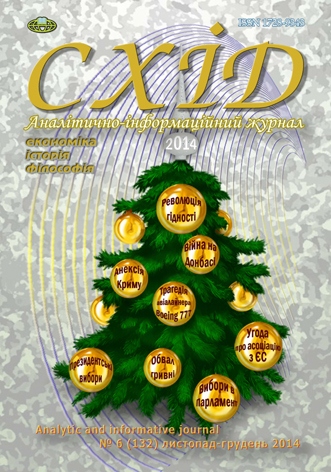The role of financial monitoring in the system of financial control
DOI:
https://doi.org/10.21847/1728-9343.2014.6(132).36415Keywords:
financial monitoring, financial control, financial monitoring entities, the amount of the financial transactionsAbstract
Financial monitoring is considered as a special method of financial control that sets it apart from previously published works of Ukrainian scientists. The above analysis of the main indicators of financial monitoring entities, including special executive authorities in combating legalization (laundering) of money from crime - State Financial Monitoring Service of Ukraine in comparison with the figures of the State Fiscal Service and the State Treasury Service of Ukraine, led to the conclusion about its essential role in combating of illegal financial transactions. It is also proved that the State Financial Monitoring Service of Ukraine may serve as controlling authority in the state financial control for initial financial monitoring subjects.
In addition, its role is to empower the national economy at the expense of capital, which (because of financial monitoring by terminating their outflow abroad) remain in Ukraine and increasing thus the volume of revenues to budgets of different levels and targeted at providing social needs of the population.
The importance of financial monitoring confirmed by the Law of Ukraine "On prevention of legalization (laundering) of proceeds from crime, terrorist financing and financing of weapons of mass destruction", which (to replace the current law) will become effective on February 7, 2015. The law has special importance to application of economic methods and techniques as tracking, monitoring and analysis, and coordination of all public bodies engaged in the study area.Downloads
References
On prevention and counteraction to legalization (laundering) of proceeds of crime, terrorist financing and financing of proliferation of weapons of mass destruction. The law of Ukraine from October 14, 2014 № 1702-VII, available at: http://search.ligazakon.ua/l_doc2.nsf/link1/T141702.html (ukr).
On prevention of the use of financial system for the purpose of money laundering. Council Directive 91/308/EEC of 19 June 1991, available at: http://zakon4.rada.gov.ua/laws/show/994_774 (ukr).
Galli S. J. and Wexton J. L. (1996), Anti-Money Laundering Initiatives and Compliance - US Perspective: Money Laundering Control, Round Hall Sweet & Maxwell, Dublin (engl).
On approval of the Regulations on the State service for financial monitoring of Ukraine. The President of Ukraine Decree dated 13 April 2011 № 466/2011, available at: http://zakon2.rada.gov.ua/laws/show/466/2011 (ukr).
The State Financial Monitoring Service of Ukraine (2013), Annual report, available at: http: // www.sdfm.gov.ua/articles.php?cat_id =545&art_id=15331&lang=uk (ukr).
New legislation on combating money laundering is a key instrument of financial security of the country, available at: http://www.ukurier.gov.ua/uk/articles/nove-zakonodavstvo-z-protidiyi-vidmivannyu-zlochin/ (ukr).
The Department of tax and customs audit (2014), Main indicators of work, available at: http://sta-sumy.gov.ua/diyalnist-/pokazniki-roboti/kontrolno-perevirochna-robota (ukr).
Information regarding stop operations with budgetary funds, available at: http://www.treasury.gov.ua/main/uk/publish/article/233813 (ukr).
Siurkalo B., Place of financial monitoring in the system of financial management, available at: http://dspace.uabs.edu.ua/jspui/bitstream/123456789/12170/4/Place%20financial%20monitoring%20system%20of%20financial%20management.pdf (ukr).
Downloads
Published
How to Cite
Issue
Section
License
Copyright (c) 2015 Alla Khmeliuk

This work is licensed under a Creative Commons Attribution-NonCommercial-NoDerivatives 4.0 International License.
1. Authors bear responsibility for the accuracy of facts, quotations, numbers and names used.
2. Manuscripts are not sent back.
3. The publisher does not always agree with the authors' opinion.
4. The authors reserve the right to authorship of the work and pass the first publication right of this work to the journal under the terms of a Creative Commons Attribution-NonCommercial-NoDerivatives 4.0 International License. This license allows others to distribute (copy) the published work for non-commercial purposes, provided there is mandatory attribution to its authors and a link to the first publication in our journal.
5. The authors have the right to conclude separate supplement agreements that relate to non-exclusive work distribution in the form in which it has been published by the journal (for example, to upload the work to the online storage of the journal or publish it as part of a monograph), provided that the reference to the first publication of the work in this journal is included.

